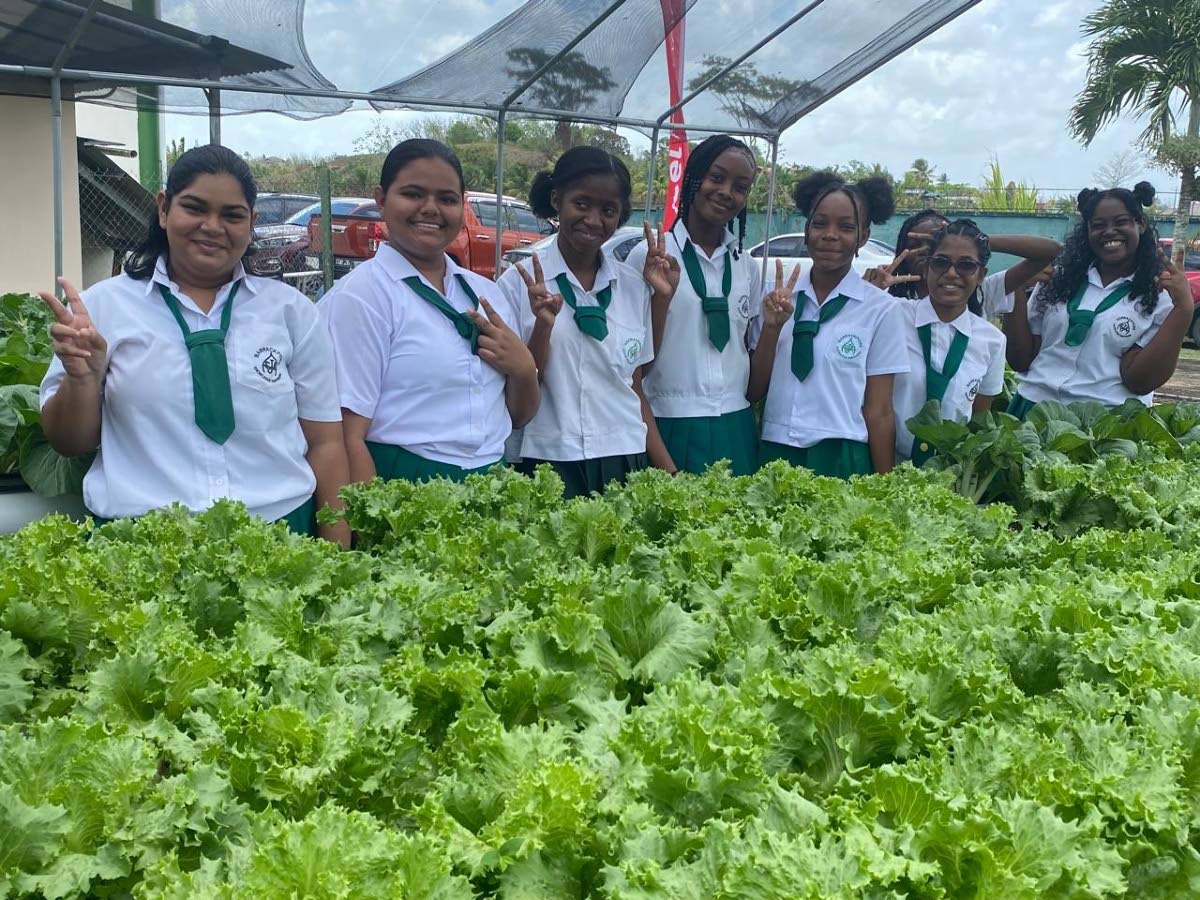By Newsday
Copyright newsday

Felicia Smart
The Caribbean Single Market and Economy (CSME) stands at a pivotal crossroads.
As the region faces the compounded challenges of climate change, global supply chain disruptions and persistent food import dependency, the imperative to build resilient, value-added supply ecosystems has never been clearer.
From farm to table and fashion to fintech, Caribbean businesses are uniquely positioned to transform these challenges into opportunities, by investing in value chains that keep economic activity, jobs and innovation within the region.
The case for regional value chains
The Caribbean imports more than 60 per cent of its food, making it one of the world’s most import-dependent regions.
This reliance exposes our economies to external shocks, price volatility and food security risks.
At the same time, the region’s agricultural sector is constrained by fragmented supply chains, limited infrastructure and vulnerability to climate events such as hurricanes and droughts.
Yet, a quiet revolution is underway. Governments, private sector leaders and entrepreneurs are reimagining the Caribbean’s economic future.
The focus is shifting from exporting raw commodities to building integrated value chains that add value at every stage: production, processing, packaging, logistics and branding. This approach not only retains more wealth within the region but also creates higher-value jobs and fosters innovation.
Technology and innovation: The new drivers
Recent years have seen a surge in agri-tech adoption and climate-smart practices across the Caribbean.
Precision agriculture, powered by satellite imagery and data analytics, is enabling farmers to optimise crop management and resource allocation.
In Jamaica, demonstration plots showcase drought-resistant seeds and sensor-based irrigation, reducing crop losses and improving yields.
TT’s blockchain-based tracking for produce exports is enhancing traceability and food safety – critical for accessing international markets.
Urban centres in Barbados are experimenting with hydroponics and vertical farming, maximising land use and reducing water consumption.
Throughout the Eastern Caribbean, mobile applications are digitising market access, giving farmers real-time data on prices, demand and logistics.
Building resilient, inclusive ecosystems
A resilient value chain is not just about technology; it’s about relationships and inclusion.
Case studies from Belize, Grenada and Jamaica demonstrate that value chains function most efficiently when small-scale farmers, processors and exporters collaborate closely. Contract farming models, co-operatives and alliances with input suppliers and marketers help ensure consistent quality, reliable supply and mutual benefit.
The integration of smallholders into value chains is crucial. When farmers are connected to processors and exporters, they gain access to finance, training and market information. In turn, processors and traders benefit from a reliable supply of quality raw materials tailored to market requirements.
Investment trends and opportunities
The Caribbean is witnessing growing private sector investment in agriculture and agri-processing.
Financial institutions are increasingly interested in green and agriculture-aligned portfolios, recognising the sector’s potential for commercial viability.
The Caribbean Investment Forum (CIF) 2025, themed: SMART. GREEN. CONNECTED, spotlighted bankable ventures and blended finance solutions that de-risk investment pipelines and move the sector beyond grant dependency.
Key areas of opportunity include:
● Agro processing: Moving up the value chain by producing finished goods (eg chocolate, sauces, juices) for local and export markets.
● Cold storage and logistics: Investments in infrastructure to reduce post-harvest losses and improve market access.
● Digital platforms: Tools for real-time market data, predictive analytics and supply chain transparency.
● Climate-resilient infrastructure: Solar drying facilities, water harvesting systems and renewable energy integration.
● Export market development: Leveraging diaspora demand and preferential trade access to the EU and regional markets.
● Explore export of services: Leverage technology to provide expert services to international clients in marketing, design, administrative support and more, which is less capital-intensive to commence and maintain
The role of the private sector
Private sector leadership is essential to scaling these opportunities.
Companies like AgriAssure are pioneering AI-driven compliance and market access solutions tailored to the unique challenges faced by Caribbean agribusinesses seeking to enter international markets.
By simplifying complex regulatory requirements and providing expert support, AgriAssure helps businesses overcome trade barriers, unlock export potential and attract investment.
These solutions reduce risks associated with market entry and compliance, encouraging greater adoption of productivity-enhancing technologies and sustainable practices throughout the value chain.
Moreover, private sector partnerships with governments and development agencies are catalysing innovation hubs, demonstration farms and training programmes. These collaborations are vital for mainstreaming new technologies and building the skills needed for a modern, competitive agricultural sector.
From vision to action
The CSME provides a framework for harmonising standards, reducing trade barriers and fostering cross-border investment.
To fully realise its potential, the region must continue to:
● Invest in infrastructure and technology that support value addition and market access.
● Foster inclusive business models that integrate smallholders, women and youth.
● Develop risk management tools and blended finance mechanisms to attract private capital.
● Leverage digital platforms for supply chain transparency and efficiency.
The Caribbean’s journey from farm to fork and beyond depends on our ability to build value chains that are resilient, scalable and regionally integrated.
By investing strategically and collaboratively, the private sector can drive a new era of growth, food security and prosperity for the Caribbean.



